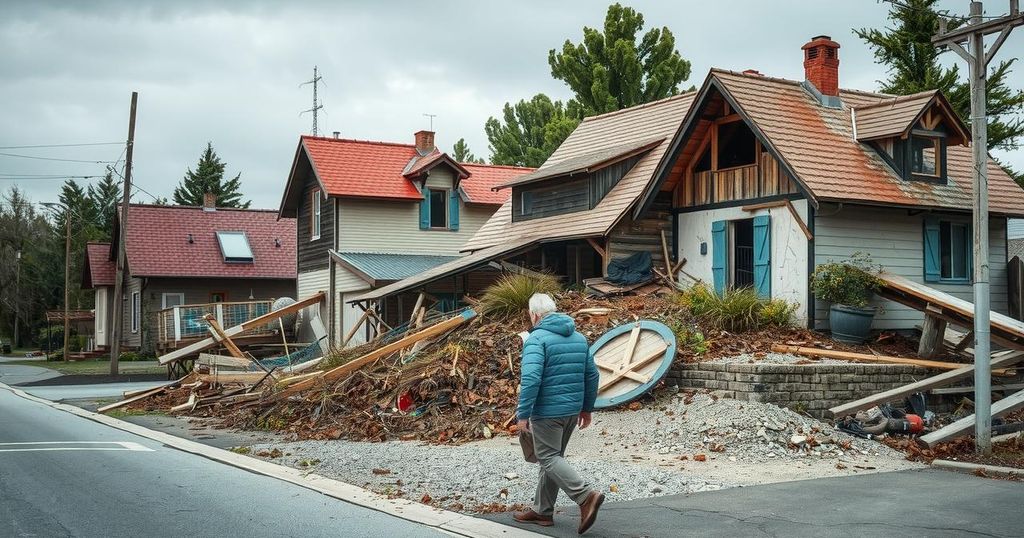Cyclone Chido Devastates Mayotte, Claims Lives and Causes Extensive Damage

Cyclone Chido has left at least 11 people dead in Mayotte, causing major destruction before impacting northern Mozambique, where 2.5 million may be affected. Rescue efforts are underway from France, establishing an air and sea bridge for aid delivery to the devastated regions. The cyclone’s intensity highlights a concerning trend of increasing cyclone severity due to climate change, posing risks for impoverished communities in southern Africa.
Cyclone Chido has caused significant destruction and loss of life, resulting in at least eleven fatalities in the French island territory of Mayotte, located in the Indian Ocean. Following its impact on Mayotte, the cyclone made landfall in northern Mozambique, leading to warnings of further casualties and widespread damage affecting up to 2.5 million individuals. Authorities reported that the cyclone, classified as a category 4 storm, generated winds surpassing 220 kilometers per hour (136 miles per hour). The French Interior Ministry confirmed the devastation in Mayotte, where infrastructure, including the main hospital and airport, suffered severe destruction. As rescue efforts commence, France is establishing an air and sea bridge to facilitate aid delivery, with an additional contingent of responders being dispatched. The cyclone’s path has also threatened neighboring regions, prompting evacuations in Malawi and Zimbabwe due to flooding concerns. A broader contextual examination reveals that cyclones in southern Africa have intensified due to climate change, exacerbating humanitarian crises in impoverished countries.
Cyclone Chido, which struck the Indian Ocean and parts of southern Africa, is a stark representation of the increased frequency and severity of tropical cyclones attributed to climate change. Historical data indicates that regions like Mozambique, Malawi, and Zimbabwe have faced numerous devastating storms in recent years, overwhelming local infrastructure and prompting urgent humanitarian responses. Reports suggest that the humanitarian impacts, including the risk of waterborne diseases following flooding, place additional strain on already vulnerable populations. The international community’s response is crucial for aiding affected regions, highlighting a need for sustained investment in disaster resilience and emergency response capacity.
In summary, Cyclone Chido’s catastrophic effects on Mayotte and its subsequent path into Mozambique underscore the dire consequences of increasing cyclone activity linked to climate change. With at least eleven confirmed deaths and significant infrastructural damage, immediate response efforts from France and international aid agencies are paramount. As countries in southern Africa prepare for the aftermath, the growing urgency for climate action and support for vulnerable communities becomes exceedingly clear. The humanitarian crises resulting from such natural disasters necessitate a coordinated effort to mitigate impacts and bolster resilience against future cyclones.
Original Source: time.com








